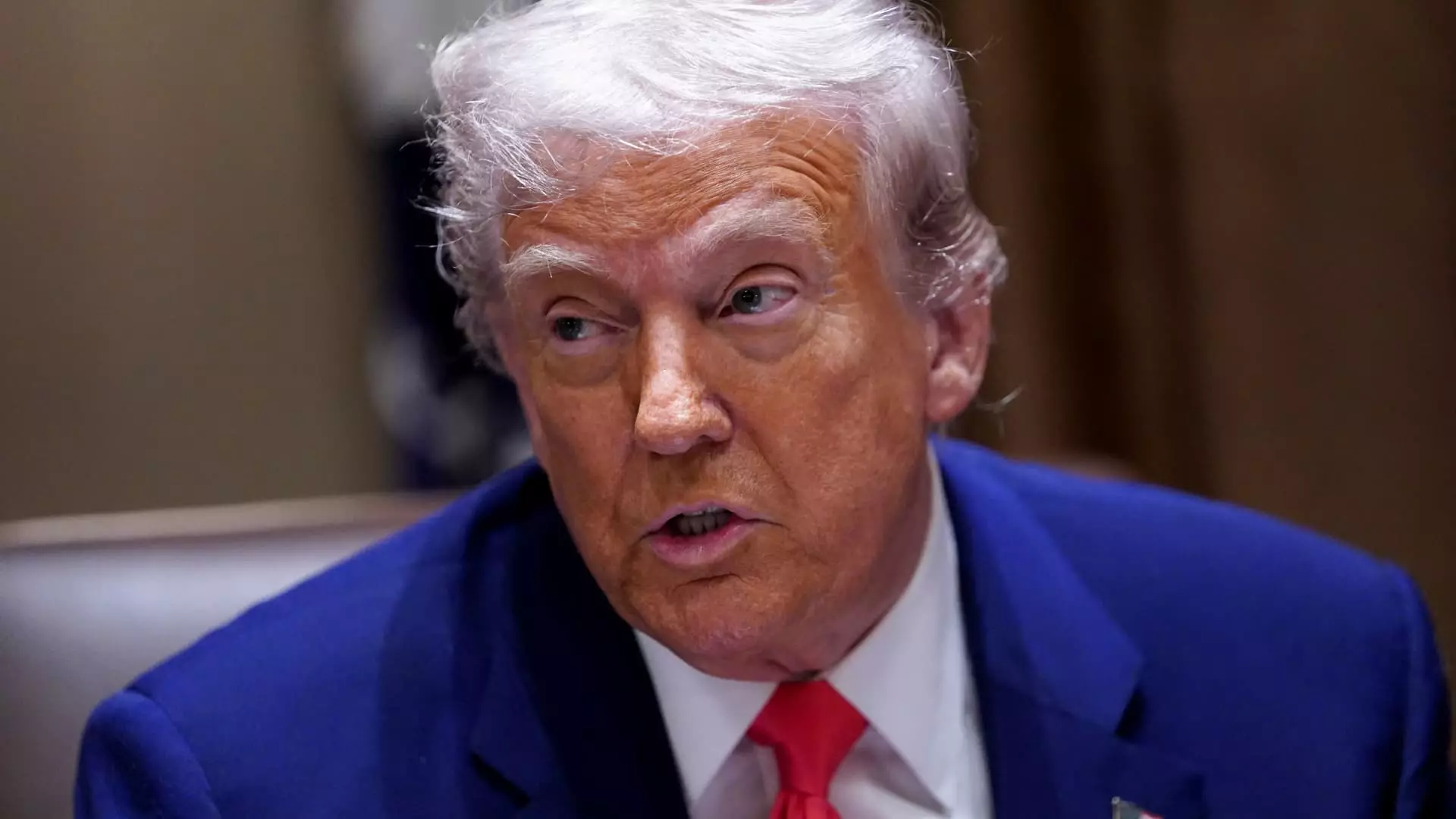In an audacious move that has sent shockwaves through global markets, President Donald Trump’s decision to raise tariffs on Chinese imports to a staggering 145% raises serious concerns about economic repercussions. According to economist Erica York, the ramifications of such steep tariffs could effectively sever trade ties with China, a pivotal player in international commerce. York’s assertion on CNBC draws attention to the gravity of high tariffs: “if you get north of a triple-digit tariff, you are cutting off most trade.” This isn’t merely an abstract consideration; it is a textual representation of the potential unfolding crisis as the U.S. seeks to redefine its trade relationships.
As the markets react—erasing considerable gains observed just a day prior—one cannot ignore the potential consequences on both domestic and international economic landscapes. Trump’s tariffs come against a backdrop of fragile global recovery, suggesting that this could further exacerbate tensions between the world’s two largest economies. The volatility is further compounded by the U.S. stock market’s immediate downturn, following official confirmation of the heightened tariffs: these aren’t just numbers; they represent a shift that could have long-lasting implications.
Protectionism: A Double-Edged Sword
What Trump is instigating is not just an increase in tax revenues; at an estimated $171.6 billion, the move represents the most significant tax hike since 1993, dwarfing previous increases under both George H.W. Bush and Barack Obama. Yes, it might strengthen federal coffers in the short term, but what about the long-term ramifications? This protectionist philosophy veers towards economic isolationism, which historically has stalled growth rather than catalyzed it. Critics worry that while tariffs can initially bolster domestic revenue, they often result in inflated consumer prices and diminished selection, hurting the very populace they are purported to defend.
Furthermore, the administration’s gamble has provoked retaliation from China; imposing their own tariffs—which have escalated from 34% to 84%—may demonstrate that the Dragon is not one to back down easily. Such tit-for-tat measures can ignite a trade war, compromising the stability of both economies while leaving consumers and businesses to grapple with heightened costs and limited access to goods. It begs the question: is this really the route to securing American interests?
A Call for Balanced Trade Practices
In an era defined by globalization, crafting a balanced trade policy is paramount. The objective should not solely be about raising tariffs but developing frameworks that enhance cooperative trade, focusing on areas where both nations can benefit significantly. Trade should allow for competition that benefits consumers, not policies that isolate and restrict. As an advocate for center-right liberalism, I argue that the road ahead should prioritize strategic negotiation over punitive tariffs.
Tariffs, particularly those set at this eye-watering level, reflect a misunderstanding of complex economic interdependencies that sustain modern economies. A more measured approach could treat international trade as a collaborative effort rather than a battleground, allowing for growth that doesn’t come at the expense of diplomatic relations or economic stability. It is imperative to rethink strategies—embracing a path that fosters partnership rather than division, steering clear of the protectionist path that history has shown us can lead to economic despair.


Leave a Reply